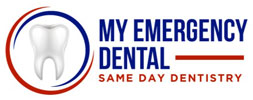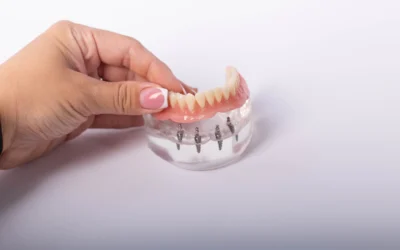Picture this…
You were up late binge-watching your favorite tv series. It was so intense that you just had to see the next episode (or five) to find out what happens. But, you failed to consider that you have a toddler who likes to wake up before the sun. Maybe he’ll sleep later this time.
When you hear the pitter-patter of little footsteps at 6 am, you know your hopes were for nothing. You have a long day ahead of you, and you are dog-tired. You need some caffeine, and you need it fast. You put on a pot of coffee. You eagerly await your hot drink.
As you take your first sip, you instantly feel a searing pain in one of your teeth. You take another sip just to be sure, but again, pain. You can’t bring yourself to finish your drink. This is going to be a long day…
This may sound like a nightmare. The cause of these unfortunate events could be the result of sensitive teeth. Having sensitive teeth means that some of the protective enamel on your teeth has worn away.
When having sensitive teeth, you may experience temporary sharp pain when eating and drinking hot or cold things, breathing in cold air, or even when brushing your teeth. What causes sensitive teeth, and is there any way to prevent or cure this painful condition?
Common Causes of Sensitive Teeth
1. Acidic Foods
Some foods and drinks can have a negative effect on the enamel of your teeth, which can then lead to tooth sensitivity. Acidic foods can wear down your tooth enamel. Some of these foods are sticky candy, sodas, and citrus fruits.
2. Gum Disease
Gum disease causes inflammation and damage to the soft tissue around the tooth. Gum disease can lead to the pulling away of supporting ligaments around your tooth. This ligament loss causes the tooth’s roots to become exposed.
3. Teeth Whitening
While having your teeth whitened is a safe and effective way to achieve a beautiful, white smile, the bleach or peroxide solutions used can cause temporary tooth sensitivity. This is due to the solutions removing some of the minerals from the enamel of your teeth.
4. Aggressive Brushing
When brushing, some of us may feel the need to really get in there and scrub hard. Brushing hard can seem like a requirement to remove all the gunk and grime off your teeth. But, brushing too hard can take off more than just the gunk.
Aggressive brushing can also scrub away the protective enamel on your teeth.
5. Tooth Decay
Tooth decay, otherwise known as cavities, are damaged areas of your tooth that develop into small holes. If deep enough, these small holes can affect the nerves causing tooth sensitivity and pain.
A cracked or broken tooth can also cause inflammation. A crack that reaches down to the root of the tooth can result in painful sensitivity.
Solutions
Luckily, you don’t have to miss out on coffee, ice cream, or other hot and cold treats for the rest of your life. There are ways to help prevent and treat tooth sensitivity.
1. Desensitizing Toothpaste
There are specific kinds of toothpaste for those suffering from sensitive teeth. The ingredients in these types of toothpaste can help block pain and work to rebuild the enamel of your teeth.
2. Fluoride
Opting for fluoride treatments at your regular dental exams even as an adult can help to diminish sensitivity by strengthening and protecting your teeth.
3. Dental Procedures
Certain dental procedures may be required to help get to the root of your tooth sensitivity. . These procedures may include:
- Fillings
- Root Canals
- Crowns
- Inlays
- Bonding
- Surgical Gum Graft
4. Soft-Bristled Brush
Choosing a brush with soft bristles will help decrease the chances of removing your tooth enamel along with the plaque. Soft-bristled toothbrushes also minimize irritation to your gums.
5. Snack Choices
Limiting your intake of acidic foods and drinks will help prevent enamel erosion. If you decide to eat acidic foods, try drinking water afterward to help counteract the acidity. If your drink choice is relatively acidic, consider drinking it with a straw. This will help limit the amount of acidic liquid that comes in contact with your teeth.
6. Regular Dental Visits
Seeing your dentist twice a year can help prevent many oral health problems, including sensitive teeth. Your dentist will be able to spot potential problems before they become major issues that could result in unnecessary pain or even emergency dental care.
If you are struggling with sensitive teeth, try some of these preventative measures or make an appointment with a dentist that offers complete dental care in Mableton. Sensitive teeth don’t have to be a part of your life forever.



